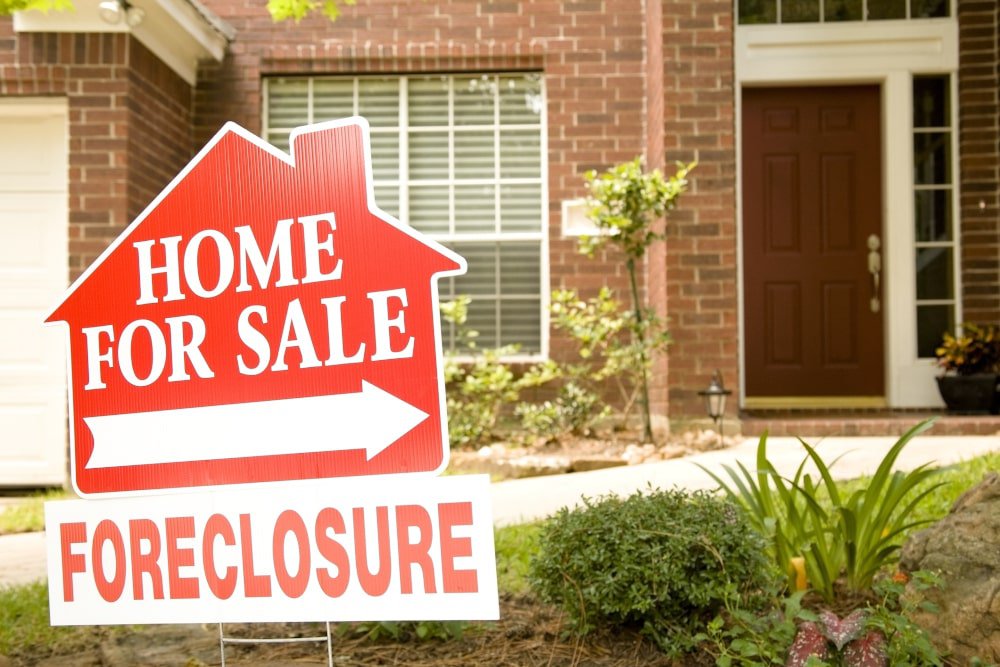How to Buy a Foreclosed Home in Canada

Understanding the Foreclosure vs the Power of Sale Process
A foreclosure occurs when the current tenant of a home is unable to keep up with their monthly mortgage payments, thereby defaulting on their loan. In this case, the lender is able to force the sale of the home in order to recover the loan balance. Although foreclosures are less common in Canada than in the US, they do still occur. It is important to note that power of sales are more common in Ontario than foreclosures. If you are looking to purchase a foreclosed home, it is important to first familiarize yourself with the foreclosure process.
What is a Foreclosure?
Under a foreclosure, the lender will take ownership of the home’s title. This means that the lender now has complete legal ownership of the home, and is free to use the property as they please. To begin the foreclosure process, the lender must petition to the judicial court in order to be granted approval. This process, known as a judicial sale, is most commonly launched after a few months of missed payments.
The judicial sale is a lengthy and expensive process, designed to help the borrower fight for their right to the home. If the borrower loses the court case, they are afforded a 30+ day redemption period during which they can pay back their owed balance and retain ownership of their home. If at this point the payment is not made in time, the borrower forgoes all rights to the home, and the lender is not required to pay back any profits made from the sale of the home. The lender also takes the risk that if they do not recuperate their full investment and fees, they are not able to seek additional money from the borrower in a foreclosure. The borrower is also not entitled to receive back any of their equity and cannot sue their lender in this regard.
Is Foreclosure the Same as Power of Sale?
If you live in Ontario, and a few other provinces, lenders are still entitled to perform foreclosures, but often opt for a different process known as power of sale. The power of sale process is a faster process in which the lender only acquires the legal right to sell the home, not complete ownership of the property. Unlike the foreclosure process, obtaining the right to put a defaulted borrower into a power of sale tends to be a much simpler and quicker of a process than a foreclosure would be in Ontario.
When a home is sold under power of sale, the lender is legally obligated to sell the home at fair market value and must pay back any profits to the borrower which would enable the borrower to get compensated for any available equity. There is also a 30–45-day redemption period in which the borrower is afforded the chance to pay back their outstanding balance. Once the lender makes back the loan amount, any additional profits made from the sale of the home must be awarded back to the borrower. Unlike a foreclosure, the borrower is allowed to sue the lender for shortfalls in their payment and vice versa. If the lender comes out short, they can then sue the borrower for any outstanding amounts.
The Importance of Preparation
You can easily set yourself up for success when buying a foreclosed home, as long as you are well-prepared. One of the first steps you might want to consider is hiring a realtor. While you may not always need a realtor to put down a traditional offer, buying a foreclosed home can be a more complicated process and an experienced realtor can be a great help. You could also consult with a Clover Mortgage broker to determine whether buying a foreclosed home is a good idea for you, and what the process would entail for your specific needs.
Another important consideration will be your budget. You should aim to prepare enough down payment, pay down your existing debt, and correct your credit score before beginning your application. However, before beginning the process, it is wise to have a general idea of how much money you should put aside. Here are some of the lesser-known fees and costs you may want to keep in mind:
- Inspection, Appraisal, Repairs : before putting down an offer on your desired home, you may want to inspect and appraise the property. After an inspection, if damages are discovered, the seller may have to make repairs themselves. However, there are some damages that will be your responsibility to fix. These may include chipped paint, old appliances, etc. The repairs you will have to pay for will depend on the terms outlined in your contract with the seller.
- Utilities, Cleaning, Lock-Changing: when you move into a new home, there are a few necessary costs you are going to have to incur. You may have to pay professional cleaners to prepare the property for your move in. There are also costs to turn on your utilities, switch utilities providers, and change the locks.
- Taxes: whether you are buying your first home or moving to a new one, you will have to account for property taxes and land transfer taxes when calculating your budget. In order to calculate the full amount, you may have to look at your local housing laws and regulations. You could also consult a Clover Mortgage broker or local realtor to learn more about the best location for your home.
- Paperwork and Closing Fees : there are a few miscellaneous costs you may incur in the process of preparing the paperwork you need to close. Title insurance, document preparation, and legal fees may be incurred during this process. Title insurance is a mandatory closing fee that many buyers are not aware of. For more information, check out our guide on title insurance.
Making Your Offer
If you have researched the foreclosure process, familiarized yourself with all the costs, budgeted accordingly, consulted a realtor, and consulted an experienced mortgage broker, the only thing left to do is to make an offer. Making an offer can be a scary process, especially given the competitive nature of the current market. However, by this point in the guide you should be equipped with some helpful the information you need to help you succeed.
Given the nature of foreclosed home sales, you may have to act faster than usual to secure a sale. Sometimes, lenders will reduce the price of the home or cover certain closing fees to get the property sold as quickly as possible. Given these advantages, there is a hot market for foreclosed real estate in Canada, and bidding wars may not be entertained for longer than a day or two if many offers are flooding in.
The best way to increase your odds of a successful offer is to come in prepared with a pre-approval. Here at Clover Mortgage, we offer pre-approvals and pre-qualifications across our vast network of 70+ lenders, and can help connect you with the best mortgage terms, and lowest interest rates that we have available for you. By obtaining a pre-approval, you can know with a high degree of certainty how much mortgage you can afford, which allows you to make more accurate bids. Having a pre-approval also gives sellers greater conviction in your ability to close the deal, leading to a higher likelihood for having your offer accepted.
For more information, check out our guide on mortgage pre-approvals , or contact us today to book your free consultation!
Resources




